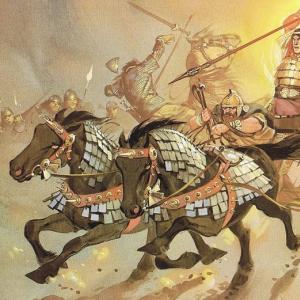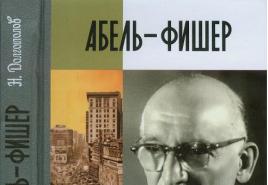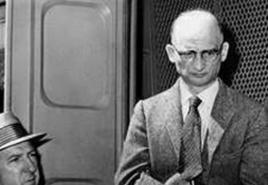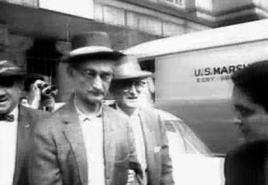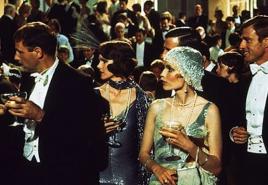A block presentation. Presentation on the topic "alexander alexandrovich block"
Slide 2
Biography
Born on November 16 (28), 1880. By origin, family and kinship ties, and friendly relations, the poet belonged to the circle of the old Russian intelligentsia, who served science and literature from generation to generation. The only child of Alexandra Andreevna. The poet's mother, shortly after the birth of her son, left her husband, a Warsaw lawyer of German origin Alexander Lvovich Blok (1852-1909), because of an intolerable attitude.
Slide 3
In 1889, Blok's mother remarried a Guards officer FF Kublitsky-Piottukh. Nine-year-old Blok settled with his mother and stepfather in the Grenadier Barracks, located on the outskirts of St. Petersburg, on the banks of the Bolshaya Nevka. Then Blok was sent to the gymnasium. In 1897, finding himself with his mother abroad, in the German resort town of Bad Nauheim, Blok experienced his first, but very strong, youthful love. She left a deep mark on his poetry. In 1898, after graduating from the gymnasium, Blok "quite unaccountably" entered the law faculty of St. Petersburg University. Three years later, convinced that he was completely alien to legal science, he transferred to the Slavic-Russian department of the Faculty of History and Philology, from which he graduated in 1906. Biography
Slide 4
Blok wrote his first poems at the age of five. Since childhood, Alexander Blok spent every summer in the estate of his grandfather Shakhmatovo near Moscow. 8 km away was the estate of Beketov's friend, the great Russian chemist Dmitry Mendeleev Boblovo. In 1903, Blok married Lyubov Mendeleeva, daughter of DI Mendeleev, the heroine of his first book of poems, Poems about the Beautiful Lady. They were like a prince and a princess, but, alas, Alexander Blok was not constant in his amorous affairs and periodically fell in love with "secular lionesses": at one time it was the actress Natalya Nikolaevna Volokhova, then - the opera singer Andreeva-Delmas. Lyubov Dmitrievna also indulged in hobbies. On this basis, Blok had a conflict with Andrei Bely, described in the play "Balaganchik". Bely, who considered Mendeleev the embodiment of the Beautiful Lady, was passionately in love with her, but she did not reciprocate. Biography
Slide 5
However, after the First World War, relations in the Blok family improved, and the poet lived his last years with Lyubov Dmitrievna, his faithful husband. Blok met the February and October revolutions with mixed feelings. He refused to emigrate, believing that he should be with Russia in difficult times. In early May 1917, he was hired by the "Extraordinary Commission of Inquiry to investigate the illegal actions of former ministers, chief managers and other senior officials of both civilian and military and naval departments" as editor. In August, Blok began to work on a manuscript, which he considered as part of a future report of the Extraordinary Commission of Inquiry and which was published in the magazine "Byloe" (No. 15, 1919), and in the form of a book called "The Last Days of the Imperial Power" (Petrograd , 1921). Biography
Slide 6
Finding himself in a difficult financial situation, he was seriously ill and on August 7, 1921 he died in his last Petrograd apartment from inflammation of the heart valves. A few days before his death, there was a rumor in St. Petersburg: the poet had gone mad. Such information probably spread from Bolshevik circles and later received publicity in Soviet magazines. Indeed, on the eve of his death, Blok raved about for a long time, obsessed with the only thought: whether all copies of "The Twelve" were destroyed. However, according to the testimony of V.F.Khodasevich, the poet died in full consciousness. The poet was buried at the Smolensk cemetery. The funeral service was performed in the Church of the Resurrection of Christ. Blok's ashes were reburied at the Volkovskoye cemetery. Biography
Slide 7
Family and relatives
The poet's relatives live in Moscow, Riga, Rome and England. Until recent years, Alexander Blok's second cousin, Ksenia Vladimirovna Beketova, lived in St. Petersburg.
Slide 8
Creation
He began in the spirit of symbolism, the sense of the crisis of which he proclaimed in the drama "Balaganchik". Blok's lyrics, close to music in their "spontaneity", were formed under the influence of romance. Through the deepening of social tendencies (cycle "City"), religious interest (cycle "Snow Mask", Publishing House "Ora", St. Petersburg 1907), understanding the "terrible world", awareness of the tragedy of modern man (play "Rose and Cross") came to the idea of \u200b\u200bthe inevitability of "retribution" (cycle "Yamba"; poem "Retribution"). The main themes of poetry were resolved in the cycle "Homeland" (1907-1916).
Slide 9
At first, Blok accepted both the February and October revolutions with readiness, full support and even enthusiasm, which, however, was enough for a little more than one short and difficult 1918 year. "In 1917-18, Blok was undoubtedly captured by the spontaneous side of the revolution. The" world fire "seemed to him a goal, not a stage. The world fire was not even a symbol of destruction for Blok: it was a" world orchestra of the people's soul. " him more justified than a trial.
Slide 10
The rethinking of revolutionary events and the fate of Russia was accompanied for Blok by a deep creative crisis, depression and progressive illness. After the outburst of January 1918, when "Scythians" and "Twelve" were created at once, Blok completely stopped writing poetry and answered all questions about his silence: "All sounds have stopped ... Can't you hear that there are no sounds?" And to the artist Annenkov, the author of cubist illustrations for the first edition of the poem "The Twelve", he complained: “I am suffocating, suffocating, suffocating! We suffocate, we all suffocate. The world revolution is turning into a world angina pectoris! "
Slide 11
Slide 12
Creation
The last cry of despair was the speech read by Blok in February 1921 at an evening dedicated to the memory of Pushkin. Both Akhmatova and Gumilyov listened to this speech, who appeared for reading in a dress coat, arm in arm with a lady who was shivering from the cold in a black dress with a deep neckline (the hall, as always in those years, was unheated, steam was clearly coming from everyone's mouth) ... Blok stood on the stage in a black jacket over a white turtleneck sweater, his hands in his pockets. Quoting the famous line of Pushkin: "There is no happiness in the world, but there is peace and will ..." - Blok turned to the discouraged Soviet bureaucrat who was sitting right there on the stage (one of those who, according to Andrey Bely's caustic definition, "do not write anything, only sign") and rapped out: “… peace and freedom are also taken away. Not external peace, but creative. Not childish will, not freedom to liberalize, but creative will - secret freedom. And the poet dies, because he has nothing to breathe: life has lost its meaning for him. "
And they reached the most flat hooliganism, called the ridiculous word "futurism". I. Zdanevich. Futurism is a way of life (scandal). I. Severyanin, as it should be for a king, publishes a poetic Rescript of the King. R. Ivnev (M. Kovalev). N. Aseev. Egofuturists (translated from Latin "I am the future"). The attitude towards renewal of the poetic language (the principle of "shifted construction") L. Zak V. Shershenevich B. Lavrenev Futurism (Latin futurum - the future).
"Blok's creative path" - Enthusiastic fans. The first question. Mendeleev as Ophelia. Andrey Bely. Dark temples. I'm scared. Block after graduating from high school. Become human. Vladimir Sergeevich Solovyov. Heavy sleep. Blok .. Three plans of the lyrical heroine. I enter dark temples. The image of Lyubov Dmitrievna Mendeleeva. Analysis of poems. Alexander Alexandrovich Blok. Describe the literary setting of the early twentieth century.
"Dream in Literature" - Oblomov's Dream. Raskolnikov's dream. Dual relationships. Crime and Punishment. Dreams of the heroes of Russian literature of the 19th century. Symbolic character. My way. Composite component. Selection of material. Sleep in a literary work. Sleep reception. Nightmare. Tatiana's dream.
"Analysis of Yesenin's Poems" - Linguistic analysis of the poem "I do not regret, I do not call, I do not cry ...". Transparent white color. Reader. The skill of the poet. Repetitions. Metaphors. The unity of the external pattern. Yesenin's nature. Deep content. Feelings and thoughts are inseparable. Traditional Yesenin images. Yeseninskaya birch. Leading party. Work of fiction. My biography. Yesenin's life path. Language dominant. A vagrant spirit.
"Ulitskaya" Daughter of Bukhara "" - Keywords. Poster. Signs with the meaning of acceptance. Man. Signs with the meaning of categoricality. Symbols. Rapidity. Alien. Attitude of others to Bukhara. Contradictions in the story. Negative signs. Signs with the meaning of openness. Eternal values \u200b\u200bin the story. Lyudmila Ulitskaya. Fate. The Mystery of Bukhara. Work. Antithesis. Life and art. Sign.
"Biography and creativity of Yesenin" - Biography and creativity of S. A. Yesenin. Poets death. Imagism. Lyrics of recent years. Sergei Alexandrovich Yesenin. Childhood. Study. Face the new. Country of villains. At the beginning of the creative path. Searches for the "song" word.
To use the preview of presentations, create yourself a Google account (account) and log into it: https://accounts.google.com
Slide captions:
Alexander Blok (1880 - 1921) I have told you the unearthly. I chained everything in the airy darkness. There is an ax in the boat. There are heroes in a dream. So I moored to the ground.
Blok is one of the miracle-workers of Russian verse ... An ordinary poet gives his creations to people, to people himself. Nikolay Gumilyov Your name is a bird in your hand, Your name is an ice floe on your tongue. One single lip movement. Your name is five letters. Marina Tsvetaeva
1884 Alexander was a quiet, silent boy who grew up alone among the women who adored him - mothers, aunts, grandmothers. In general, as he himself said, he did not have "life impressions" for a very long time. The family carefully protected him from contact with the "rough life"
Alexander Blok in the circle of loved ones. A.A. Blok, A.A. Kublitskaya-Piottukh - mother of the poet, A.N. Beketov, N.N.Beketov, E.G. Beketova, M.A. Beketova. Shakhmatovo 1894
House in Shakhmatovo. 1880s. In a comic questionnaire in 1897 for the item "the place where I would like to live" Blok replied: "In Shakhmatovo." Blok grew up and was brought up in the family of his grandfather (A.N. Beketov), \u200b\u200bin the atmosphere of the “fragrant wilderness” of the small estate near Moscow Shakhmatovo, where the family invariably spent the summer months. But the main thing that shaped the personality and character of the poet was the atmosphere of the ancient cultural traditions and legends of the Beketov house.
I dreamed about you again. In flowers, on a noisy stage, Mad, like passion, calm like a dream, And I, thrown down, bowed my knees And thought: "Happiness is there, I am subdued again!" But you, Ophelia, looked at Hamlet Without happiness, without love, the goddess of beauty, And roses fell on the poor poet, And with roses poured, his dreams poured ... You died, all in pink radiance, With flowers on your chest, with flowers on curls. And I stood in your fragrance, With flowers on my chest, on my head, in my hands ... Block 1898
Poetic books: "Poems about the Beautiful Lady" (1904) "Crossroads" (1902 - 1904) "Bubbles of the Earth" (1901 - 1905) "City" (1904 - 1908) "Unexpected Joy" (1907) "Snow Mask" (1907) ) "Land in the snow" (1908) "Night hours" (1911)
Blok's creativity is a process of “humanization”. Stage I - "teza" (worship of the ideal, the Beautiful Lady). Stage II - "antithesis" (rampant elements of the real world, loss of the ideal). Stage III - "synthesis" (the acquisition of new positive values, Russia becomes a collective image).
The publication of the first book introduced Alexander Blok to the circle of prominent poets. The years 1906-1908 were the years of his literary growth and success. He communicates with the symbolists of the older and younger generations - D. Merezhkovsky, Z. Gippius, V. Bryusov, K. Balmont, A. Bely, Vyach. Ivanov and others.
Philosophy of Vl. Solovyov "Beauty" is the only force capable of "saving the world" "Positive all-unity": Beauty, Good, Truth "Eternal Femininity" (Soul of the World, Wisdom of God, Sophia) is an object of Platonic cult and contemplative admiration Platonic "dualism", to comprehend which it is possible only through art "Mythologism" - the perception of the world as a "created legend" (the myth of the Beautiful Lady) The meanings of the phenomenon are endless
Features of Blok's philosophy: everything earthly is viewed through the relation to the heavenly, eternal, infinite; belief in the imminent coming of the Soul of the World - Sophia - the Queen of Heaven, which will become a sign of the change and transformation of all things; "In individual love, world love is manifested, and love for the world itself is revealed through love for a woman."
"Poems about the Beautiful Lady" Combining the traditions of the 19th century culture and the ideals of the "new world" (the influence of Vladimir Solovyov) Poetic unity of various symbols Expectation of a complete renewal of the world Combination of two worlds, "mythical and real" Artistic description of "earthly" experiences and symbolist sense of the world A lofty lyrical character-image that transcends the prison-being
"Poems about the Beautiful Lady" is a kind of lyrical diary of intimate love experiences; love is portrayed as a rite of service to something higher; vague forebodings, anxious expectations, mystical insights and omens overwhelm the verses; the ideal world is contrasted with reality, which the poet conveys in abstractions or generalized symbols.
"Poems about the Beautiful Lady" is the first book by A. Blok. 1904 - 1905 P We met with you at sunset, You cut the bay with an oar, I loved your white dress, I stopped loving the refinement of dreams ... Approaches, approaches. Burning - The azure calm does not accept ... We met in the evening fog, Where there are ripples and reeds near the shore. May 13, 1902 The first collection of poetry was largely inspired by a deep feeling for Lyubov Dmitrievna Mendeleeva and a fascination with the philosophical ideas of V.S.Soloviev.
And you shake off the heavy sleep of everyday consciousness, longing and loving. Vl. Soloviev I feel you. Years pass by - All in the guise of one I anticipate You. The entire horizon is on fire - and unbearably clear, And I wait silently - longing and loving. The entire horizon is on fire, and the appearance is close, But I'm scared: you will change your appearance, And you will boldly arouse suspicion, Changing the usual features at the end. Oh, how I will fall - both sad and low, Not having overcome the deadly dreams! How clear is the horizon! And radiance is near. But I am afraid: you will change your appearance. June 4, 1901. S. Shakhmatovo.
The motive of expectation + the motive of fear, drama (repetition of the image-symbol "the entire horizon is on fire") Doubts in the reunification of the earthly and heavenly Fire is a symbol of the triumph of light and life over darkness and death, universal purification The appearance of the lyrical heroine doubles
I enter dark temples, I perform a poor rite. There I am waiting for the Beautiful Lady In the flickering of red lamps. In the shadow of the tall pillar I tremble from the creak of doors. And he looks into my face, illuminated, Only an image, only a dream about Her. Oh, I am used to these robes of the Great Eternal Wife! Running high on the cornices Smiles, fairy tales and dreams. Oh, Holy One, how tender the candles are, How gratifying are Your features! I do not hear any sighs or speech, But I believe: Sweetheart - You. 1902 g.
Three faces and three plans of the lyrical heroine: the cosmic plane - the Soul of the World, the religious plane - the Queen of Heaven, the everyday plan - the beloved (the features of L.D. Mendeleeva are guessed)
Features of Blok's poetry style Re-creation of forms and genres trivial for Russian poetry Dolnik is used Reconsideration of the figurative structure in poetry Experiments with rhyme Convergence of lyrics and irony
Alexander Alexandrovich Blok
The presentation was prepared by
Soldatenkova I.V.
primary school teacher
MOU secondary school №80
Yaroslavl

A.A. Blok is one of the most famous poets
Silver Age.

- Father - Professor at the University of Warsaw
- Mother - translator, writer
- Grandfather - scientist-botanist, rector of St. Petersburg University Andrei Nikolaevich Beketov

- A. Blok, the poet's mother, A. N. Beketov (grandfather) and others. Shakhmatovo, 1894
A. Blok was brought up in the family of his grandfather. He grew up without a father, surrounded by the adoration and tender care of his mother, grandmother, and aunts. “Golden childhood, Christmas tree, noble pampering, nanny, Pushkin ...” and “fragrant wilderness of a small estate”.

"The place where I would like to live is Shakhmatovo." (A. Blok.)

IT ALL STARTED THIS
In the Beketovs' house, poetry was loved and appreciated. They were written by the family, some jokingly, some seriously, almost everyone. According to the poet, the test of the pen dates back to approximately five years of age. Little Sasha wrote short poems, stories, which he carefully, in block letters, copied into albums. The boy dedicated almost all children's "collections" to his mother.

At the age of nine, Sasha began to "publish" the monthly magazine "Ship", which could fit in an ordinary notebook. Later, in the 94-97-ies, "was the editor" of the home handwritten "Bulletin", in the publication of which all relatives participated.
But Alexander began to take creativity seriously only at the age of eighteen. At that time, there were already about eight hundred poems in his "piggy bank"

POEMS ABOUT A BEAUTIFUL LADY
In 1903, Blok married Lyubov Mendeleeva, daughter of DI Mendeleev, the heroine of his first book of poems, Poems about the Beautiful Lady.

In the following poetry collections of Blok, "City", 1908, and "Snow Mask", 1907, the author concentrated on a religious theme.
Blok's later poems are a mixture of the author's hopes and despair regarding the future of Russia.

Blok met the February and October revolutions with mixed feelings. He refused to emigrate, believing that he should be with Russia in difficult times.
He continued to believe in the exceptional role of Russia in the history of mankind. This opinion was confirmed by the works "Rodina" and "Scythians".
Blok's last work was his most controversial and mysterious poem "The Twelve", 1920

Slide 2
- Blok Alexander Alexandrovich is a Russian symbolist poet.
- Alexandra Andreevna Blok is the poet's mother. Warsaw, 1880. Blok's mother, Alexandra Andreevna, is the daughter of Andrei Beketov, the rector of St. Petersburg University. Soon after the birth of Alexander, the poet's mother left her husband, Warsaw lawyer Alexander Lvovich Blok, and in 1889 she remarried a Guards officer, while leaving her son the name of her first husband.
- Nine-year-old Blok settled with his mother and stepfather in the Grenadier Barracks, located on the outskirts of St. Petersburg, on the banks of the Bolshaya Nevka. In the same year, Alexander Blok was sent to the Vvedenskaya gymnasium.
Slide 3
Vvedenskaya gymnasium
Vvedenskaya gymnasium
Slide 4
- Blok wrote his first poems at the age of five. At the age of 10, Alexander Blok wrote two issues of the Ship magazine. From 1894 to 1897, he, together with his brothers, wrote the handwritten journal Vestnik. Since childhood, Alexander Blok spent every summer in the estate of his grandfather Shakhmatovo near Moscow.
- At the age of 16, Blok became interested in theater. In St. Petersburg, Alexander Blok enrolled in a theater group. However, after the first success of roles in the theater, he was no longer given.
Slide 5
- In 1897, finding himself with his mother abroad, in the German resort town of Bad Nauheim, Blok experienced his first strong youthful crush on Ksenia Sadovskaya. She left a deep mark on his work.
Slide 6
- Blok is sixteen, his beloved is thirty-seven. At that time of her life, she was an experienced socialite, wife and mother of a family, rich, pampered. Beauty. Her "bottomless blue eyes" struck the boy outright.
- A valid state councilor came to a resort in southern Germany with children to improve her health
Slide 7
- Blok's mother was alarmed in earnest. History has preserved evidence of how she paid a morning visit to her son's mistress, screamed, clutched at her heart
- Sadovskaya was a year older (!) Than the mother of her beloved ...
Slide 8
- On the same day the boy was taken home. He ran to Sadovskaya to say goodbye. And gave her a half-withered rose. For a long time - almost eight months - they did not see each other
- In 1900, a final, decisive written explanation took place between Blok and Ksenia Sadovskaya. This time she humiliated herself, and in the end, calling the young man a "broken man," she would curse her fate for meeting him. And it was all over.
Slide 9
K. M. S.
The moon is awake. Noisy city
Thunders in the distance and pours fires
Everything is so quiet here, it's crazy there
Everything is ringing there - and we are alone ...
But if the flame of this meeting
There was an eternal and holy flame,
Our speeches would not flow like this
Your voice would not sound like that! ..
Can it be that suffering still lives,
And happiness can take away?
In the hour of an indifferent meeting
We will remember the sad sorry ...
Slide 10
In 1898 he graduated from high school, entered the law faculty of St. Petersburg University. Three years later he transferred to the Slavic-Russian department of the Faculty of History and Philology, from which he graduated in 1906. At the university, Blok meets Sergei Gorodetsky and Alexei Remizov.
- Alexei Mikhailovich Remizov is a Russian writer.
- Sergei Mitrofanovich Gorodetsky - Russian and Soviet poet
Slide 11
In 1903, Blok married Lyubov Mendeleeva, daughter of DI Mendeleev, the heroine of his first book of poems, Poems about the Beautiful Lady.
Transparent, unknown shadows
They float to You, and you float with them,
Into the arms of azure dreams
Indistinct to us - You give Yourself.
Before You turn blue without border
Seas, fields, and mountains, and forests,
The birds echo in the free height,
The fog rises, the skies turn red.
And here, below, in the dust, in humiliation,
Seeing for a moment the immortal features
Unknown slave, full of inspiration
Sings you. You do not know him,
You will not distinguish him in a crowd of people,
You will not reward him with a smile,
When he looks after him, not free,
Having tasted Your immortality for a moment.
Slide 12
It is known that Alexander Blok had strong feelings for his wife, but periodically maintained contacts with various women: at one time it was the actress Natalya Nikolaevna Volokhova, then the opera singer Andreeva-Delmas. Lyubov Dmitrievna also indulged in hobbies. On this basis, Blok had a conflict with Andrei Bely, described in the play "Balaganchik".
- A. Bely
- L. Mendeleeva
- A. Block
Slide 13
- In 1909, two difficult events take place in the Blok family: Lyubov Dmitrievna's child dies and Blok's father dies. To recover, Blok and his wife are leaving to rest in Italy and Germany. For Italian poetry, Blok was admitted to a society called the Academy. In addition to him, it included Valery Bryusov, Mikhail Kuzmin, Vyacheslav Ivanov, Innokenty Annensky.
Slide 14
Creation
- He began in the spirit of symbolism (Poems about the Beautiful Lady, 1901-1902), the feeling of a crisis of which he proclaimed in the drama Balaganchik (1906). Blok's lyrics, close to music in their "spontaneity", were formed under the influence of romance.
Slide 15
- Blok, Sologub and Chulkov in 1908.
Slide 16
- Through the deepening of social tendencies (cycle "City", 1904-1908), religious interest (cycle "Snow Mask" -1907), comprehension of the "terrible world" (cycle of the same name 1908-1916), the poem: "From the hands of you treated the wolf" ( 1909), awareness of the tragedy of modern man (play "The Rose and the Cross", 1912-1913) came to the idea of \u200b\u200bthe inevitability of "retribution" (cycle of the same name 1907-1913; cycle "Yamba", 1907-1914; poem "Retribution", 1910-1921 ). The main themes of poetry were resolved in the cycle "Homeland" (1907-1916).
Slide 17
- The paradoxical combination of the mystical and the everyday, the aloof and the everyday is generally characteristic of all of Blok's work as a whole. This is a distinctive feature of his mental organization, and, as a consequence, of his own, Blok symbolism.
Slide 18
Run, run, child of freedom ...
Here you can leave your comments or write an analysis to the poem by Alexander Alexandrovich Blok "Run, run, child of freedom ..."
Run, run, child of freedom
To the home country!
I'm true to the voice of nature
Be faithful to me!
The vaults of heaven are inaccessible here
Through smoke and dust!
Run, run, child of nature
Space is in the fields!
They are running ... Already the haystones have passed,
All around - fields.
Throughout the boundless distance
The earth trembles.
Run towards the sun, May,
Free days ...
And the native land took
Your children ...
And she took and caressed,
And hugged
And in the vernal distance she rocked them
Bells ...
And, beckoning them to the impossible,
Betrayed again
Fleeting days, troubled days,
Evil days - without time, without number ...
Slide 19
To the Muse
Is in your innermost tunes
Fatal news of the death.
There is a curse of sacred covenants,
There is an abuse of happiness.
And such an enticing force
What am I ready to repeat behind the rumor,
As if you brought angels down
Seducing with its beauty ...
And when you laugh at faith
Suddenly lights up above you
That dim, purple-gray
And once I saw a circle.
Evil, is it good? - You're all - not from here.
They say wisely about you:
For some, you are both a Muse and a miracle.
For me you are torment and hell.
Slide 20
I don't know why at dawn
At the hour when there was no more strength,
I have not perished, but I have noticed your face
And asked for your consolations?
I wanted us to be enemies
So why did you give me
A meadow with flowers and a firmament with stars -
All the curse of your beauty?
And more insidious than the northern night,
And get drunker than golden ai,
And gypsy love is shorter
There were your terrible caresses ...
And there was a fatal joy
In trampling on cherished shrines,
And delight insane to the heart -
This bitter passion is like wormwood!
Slide 21
- The poem "Stranger" was written by A.A. Blok in 1906. It was included in the cycle "Svirel sang on the bridge." It was a difficult, difficult period in the poet's life, many of his poems are permeated with an acute tragic feeling of a turning point. Difficulties were present in his personal life: Blok's wife, Lyubov Dmitrievna Mendeleeva, had an affair with his friend, the poet Andrei Bely. Blok's "Stranger" was born in this atmosphere of "torn apart dreams".
Slide 22
"Stranger" Alexander Blok
In the evenings over restaurants
The hot air is wild and deaf
And rules drunken shouts
Spring and pernicious spirit.
Far above the dust of the alley
Over the boredom of country cottages,
The bakery's pretzel is slightly golden
And the crying of children is heard.
And every evening, behind the barriers,
Breaking the bowlers
Ladies walk among the ditches
Tried and tested wit.
Oarlocks creak over the lake
And a female screech is heard
And in the sky, accustomed to everything
The disc bends senselessly.
And every night the only friend
Reflected in my glass
And moisture tart and mysterious
As me, humble and deafened.
And next to the neighboring tables
Sleepy lackeys stick out
And drunkards with rabbit eyes scream.
And every evening at the appointed hour
(Or is it just my dream?)
Girlish camp, captured by silks,
In the foggy window moves.
And slowly, passing between the drunks,
Always without companions, alone
Breathing spirits and mists
She sits by the window.
"Stranger" Alexander Blok
Slide 23
And they blow with ancient beliefs
Her elastic silks
And a hat with mourning feathers
And in the rings is a narrow hand.
And chained by a strange closeness,
Looking beyond the dark veil
And I see the coast enchanted
And an enchanted distance.
Deaf secrets are entrusted to me,
Someone's sun is handed to me
And all the souls of my bend
A tart wine pierced.
And ostrich feathers bowed
In my brain swing
And deep blue eyes
Blossom on the distant shore.
There is a treasure in my soul
And the key is entrusted only to me!
You really are a drunken monster!
I know that wine is the truth.
Slide 24
- The poem "Night, Street, Lantern, Pharmacy ..." created by Alexander Blok in 1912 is a turning point in the poet's work. Eight short stanzas not only brought their author world fame, but also changed his life views. This work marked a new stage in the work of Alexander Blok, in which he almost completely renounced the symbolism he adored so much, for the first time in his life thinking about more prosaic and banal things.
Slide 25
"Night, street, lamp, pharmacy ..." Alexander Blok
Night, street, lantern, pharmacy,
Pointless and dim light.
Live for at least a quarter of a century -
Everything will be like this. There is no escape.
If you die, you start over again
And everything will repeat itself as of old:
Night, icy ripples of the canal
Pharmacy, street, lamp.
Slide 26
Revolutionary years
- Blok met the February and October revolutions with mixed feelings. He refused to emigrate, believing that he should be with Russia in difficult times. In early May 1917, he was hired by the "Extraordinary Commission of Inquiry to investigate the illegal actions of former ministers, chief managers and other senior officials of both civilian and military and naval departments" as editor.
Slide 27
- Blok tried to comprehend the October Revolution not only in journalism, but also, which is especially significant, in his poem "The Twelve" (1918), which is not similar to all his previous works. This bright and generally misunderstood work stands completely apart in Russian literature of the Silver Age and caused controversy (both on the left and on the right) throughout the 20th century.
Slide 28
- In February 1919, Blok was arrested by the Petrograd Extraordinary Commission. He was suspected of participating in an anti-Soviet conspiracy. A day later, after two long interrogations, Blok was still released, since Lunacharsky stood up for him. However, even these one and a half days in prison broke him. In 1920, Block wrote in his diary:
... under the yoke of violence, the human conscience falls silent; then a person becomes isolated in the old; the more impudent the violence, the more firmly man becomes locked in the old. It happened with Europe under the yoke of war, with Russia - now.
Slide 29
- In January 1921, on the occasion of the 84th anniversary of Pushkin's death, Blok delivered his famous speech "On the appointment of a poet" at the House of Writers.
- This speech was the last cry of despair.
- Quoting the famous line of Pushkin: "There is no happiness in the world, but there is peace and will ..." - Blok turned to the discouraged Soviet bureaucrat who was sitting right there on the stage and rapped out:
... peace and will also take away. Not external peace, but creative. Not childish will, not freedom to liberalize, but creative will - secret freedom. And the poet dies, because he has nothing to breathe: life for him has lost its meaning.
Slide 30
- Finding himself in a difficult financial situation, he was seriously ill and on August 7, 1921, he died in his last Petrograd apartment from inflammation of the heart valves. A few days before his death, there was a rumor in St. Petersburg that the poet had gone mad. Indeed, on the eve of his death, Blok raved about for a long time, obsessed with the only thought: were all copies of the "Twelve" destroyed? However, the poet died in full consciousness, which refutes rumors of his insanity. Before his death, after receiving a negative response to a request to leave for treatment abroad (dated July 12), the poet deliberately destroyed his notes, refused to take food and medicine
- The poet was buried at the Smolensk Orthodox cemetery in Petrograd. In 1944, Blok's ashes were reburied at Literatorskie Mostki at the Volkovskoye cemetery
View all slides



